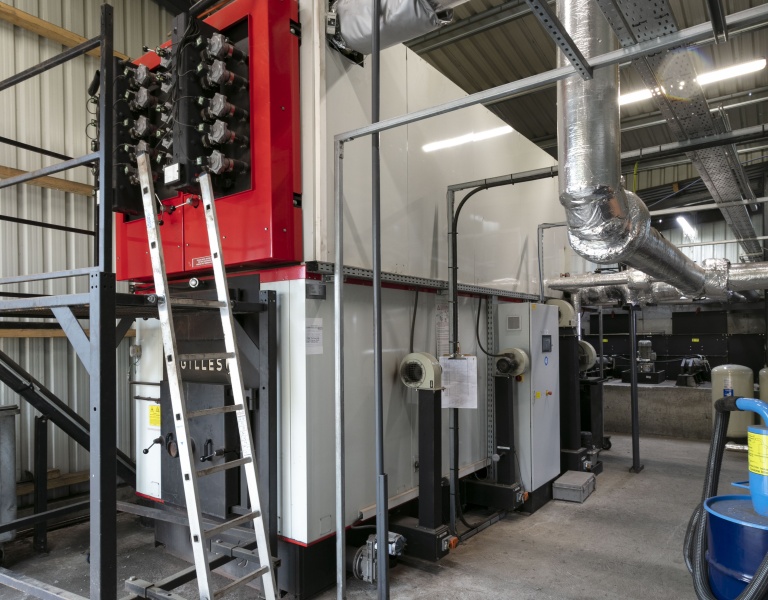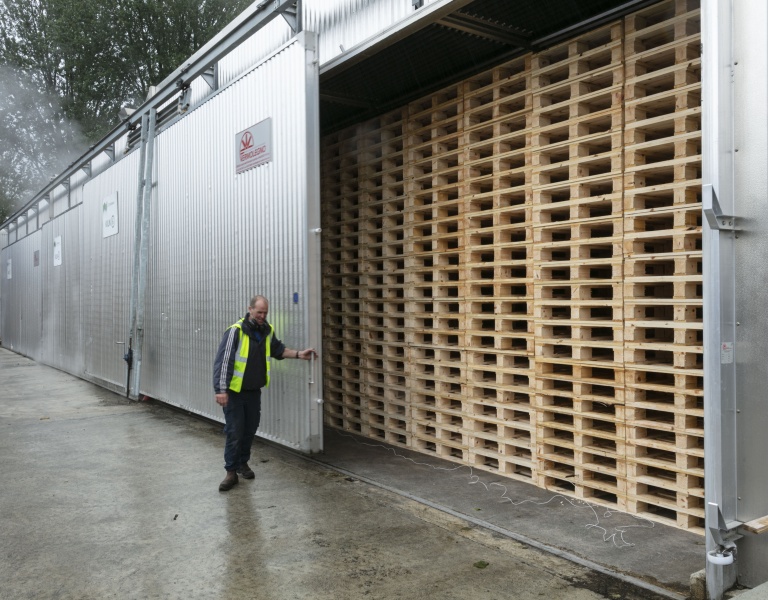CJ Sheeran reduces energy costs and carbon emissions
The pallet manufacturer has set out to lower carbon emissions and energy bills with support from SEAI.
The Project

CJ Sheeran runs a timber and pallet manufacturing business, with headquarters in County Laois. They have three sites in Laois, one in Mayo, two in Dublin and one in Westmeath.
The business manufactures its pallets to ISPM 15 standard (International Standards for Phytosanitary Measures), which is an energy intensive process as it requires kiln drying. Most of CJ Sheeran's customers export out of Ireland and the pallets need to meet these standards.
The business also has a recycling section, which takes used pallets from distribution centres. CJ Sheeran repairs those pallets and ships them to customers. They might go to customers requiring this ISPM 15 standard and will be heat treated again in these cases. Anything that can't be repaired is put through a roto chopper, which makes either equine bedding, garden mulch or wood chip for biomass.
Turning to renewable heating
Kris Peake, the Group Financial Controller, says because the kiln drying process is a huge user of energy, they were always researching ways of using renewable energy. "Obviously it was a significant kerosene bill every month. We were looking at renewable energy sources and the Support Scheme for Renewable Heat opened, so we progressed on a biomass burner route."
"A lot of our customers are multinationals, so they're looking for us to be proactive on reducing our carbon footprint and, with the grant available, it makes it achievable," she explains.
A biomass boiler was recommended as the best option for CJ Sheeran, as they already have access to wood chip to fuel the boiler. Wood chips are normally cheaper than wood pellets on a euro per kWh basis. They require about three times more storage than pellets but are less sensitive to moisture damage.
Once a site visit and consultation took place and the correct route was determined, Kris completed the application. As soon as they received the Letter of Offer from SEAI, they arranged for the biomass boiler to be installed. "The cost of the installation was a considerable investment but the annual saving in fuel costs combined with the quarterly SSRH payments justifies that investment," says Kris. It is estimated the payback will take 6.4 years.
SSRH application
Referring to the application process, Kris says "The team are great. We worked together and there was a lot of contact with SEAI between phone calls and emails. They were there to support and get you through it. It's time consuming but it's definitely well worth it".
Everyone at CJ Sheeran is very happy with the results both financially and environmentally, Kris says. "It's given the organisation the understanding as to what's involved in energy saving and to look at different aspects like that. It's given them the drive to continue to find other ways to reduce energy, and so we have people now dedicated to look at other ways to do that."
The SSRH process
The Support Scheme for Renewable Heat is a government funded initiative designed to increase the energy generated from renewable sources in the heat sector. The scheme is open to commercial, industrial, agricultural, district heating, public sector, and other non-domestic heat users.
The Scheme aims to:
- Bridge the gap between the installation and operating costs of renewable heating systems and the conventional fossil fuel alternatives; and
- Incentivise the development and supply of renewable heat.
The Scheme will support:
- An installation grant.
- On-going operational support / the tariff.
